Photo

1958 sketch of John in a life drawing class at Liverpool College of Art.
Drawn by his classmate Helen Anderson
1K notes
·
View notes
Photo

scanned from Rolling Stone Magazine (January 1981)
275 notes
·
View notes
Text
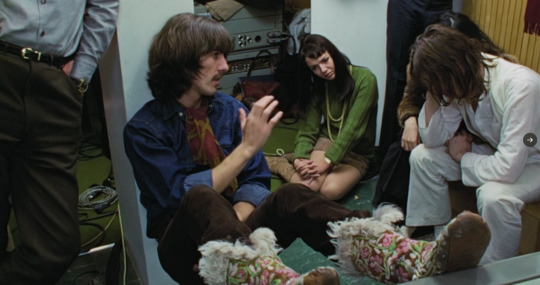
Thinking about the Beatle habit of sharing clothes - because it's so striking, and because culture, fashion and consumerism have changed so much.
The brilliant @reflectismo posted a great excerpt from George Harrison's I, Me, Mine on his teenaged fashion sense. He had a waistcoat Paul had given him: "I think he got it from John, who got it from his stepfather Mr Dykins. I also had one of our Harold's sports jackets dyed black and you could see the checkered design underneath. I wore black trousers made into drainpipes..."
From a 21st century perspective, what jumps out is the intimacy of sharing clothes. And yes, that's there, but it would read differently in the 1950s.
Clothes were scarcer and much more expensive. No fast fashion (which developed in the 1990s). The Beatles were war babies. They grew up with rationing, hand-me-downs, make do and mend. Clothes rationing didn't end until 1949. For years after that, post-war austerity meant consumer options remained limited.
So it's standard practice to pass on clothes. You'd probably get them from family and friends, but that doesn't guarantee emotional closeness. John didn't get on with his stepfather, but still took that waistcoat.

That means baby George had limited choice when it came to clothes, but he went all out in imposing his personality on them. As the youngest in both his family and the band, he clearly had a lot of hand-me-downs. But he's ready to customise: dyeing a jacket, changing the cut of the trousers. These are fashion alterations, not just making something the right size. And he wants to impress and keep up with his friends. It's not long before they'll start having matching stage clothes, trying to build a collective identity.
(I wonder if George made his own alterations? When John and Paul went to Paris in 1961, they bought wide-legged trousers, then lost their nerve when they put them on. They "must have been about fifty inches around the bottom and our drainpipe trousers were something like fifteen or sixteen inches... we couldn't handle it." The solution was to alter them: "So it was back to the hotel at a run, needle and cotton out and we took them in to a nice sixteen..." Paul takes this level of dressmaking competence for granted, but I think it would be quite unusual today. How many people do you know who could take in a trouser leg by 34 inches, on the spur of the moment?)

I'm fascinated by how they went on sharing and borrowing clothes all through the 1960s. They're rich, austerity is over, but they still get into each other's wardrobes - and those of other people they're close to. Get Back is a good example. George got those embroidered boots from Paul. John wears Yoko's fur coat, and Ringo borrowed Maureen's red raincoat for the rooftop concert.
Again, they're not alone in doing this. Glyn Johns, Get Back's fashion god, remembers that a lot of his amazing wardrobe came via the Rolling Stones.

The crocodile skin jacket was made for Keith Richards, but when it didn't fit, he passed it on to Glyn. Glyn also remembered getting "a fabulous shirt" from Mick Jagger, and going shopping with Brian Jones in Carnaby Street.
So clothes are much more available, but they're not disposable. They're both valuable in themselves - that crocodile jacket won't have been cheap - and a way to bond with people, either by passing on special garments or by buying the same things. There's plenty of fashion chat in Get Back; they're into it, they like talking about it.
And they like sharing and influencing each other - whether that's transcendental meditation or Beatle boots. In the early days, building the stage image meant matching suits and boots and haircuts. As time goes on, they got less matchy-matchy, but they're still keeping pace with each other. Sometimes they're literally sharing shirts, or buying matching capes; elsewhere, it's more about a vibe.
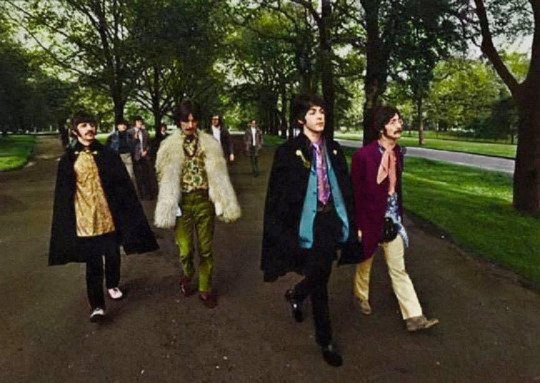
(Did they all have those cloaks? There are pictures of John wearing one: is it his own, or is he borrowing Paul's?)
But they're making this happen. I loved @lenetaylor's fabulous deep dive into Beatles wearing Henleys, and the amount of effort someone must have gone to to get so many shirts in so many colours: they weren't a readily-available basic. Some photographs suggest that Paul and John aren't just wearing matching Henleys, but might literally be swapping the same shirt.
We're way past the point of thrift or convenience. The Beatles can send out for almost anything - a velvet bow tie, an anvil - and expect it to arrive the same day. Ringo and John could certainly have got hold of their own warm coats, without borrowing from Maureen and Yoko. George and Paul are bonding over those boots - both Paul sharing the actual boots, and George sharing his vision of embroidered boot perfection. The overlapping ownership is a way to connect.
Even in a culture where hand-me-downs are standard, it's an intimate thing to wear someone else's clothing. Particularly when it's about sharing it - not just passing on a discarded waistcoat, but passing it back and forth, using it to create an identity that means something to both of you.
101 notes
·
View notes
Photo


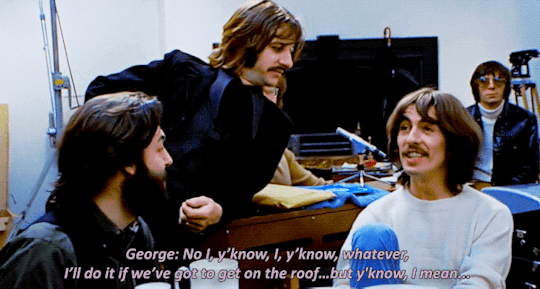


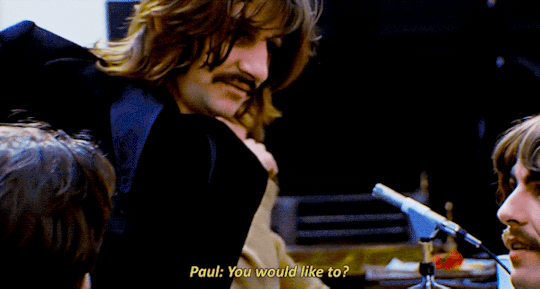
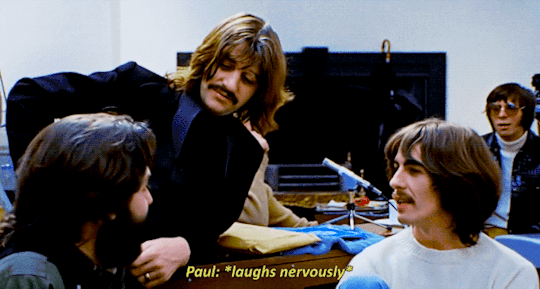
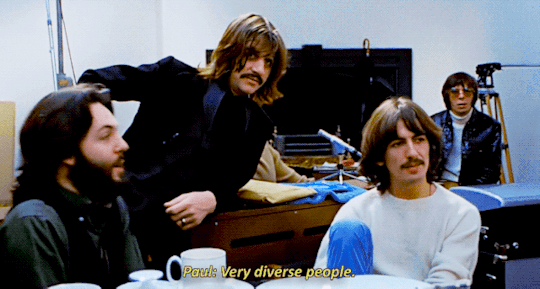
GET BACK, PART III — Ringo doesn’t talk much, but when he says he’s not going abroad, they are not going abroad. And when he says “I wanna go on the roof”, they’re going on the roof. (x)
2K notes
·
View notes
Text







ringo starr // studio albums (1970 - 1978)
sentimental journey | beaucoups of blues | ringo | goodnight vienna | ringo's rotogravure | ringo the 4th | bad boy
48 notes
·
View notes
Text










John Lennon and Yoko in New York on September, 1980. Taken by Kishin Shinoyama.
182 notes
·
View notes
Photo

I’m dyinggggg
527 notes
·
View notes
Text
“The language he used was my language. In it sounds had texture, notes had color, tracks were applied in layers like impasto, sweeping strings were brushstrokes, and so on. At the time, I assumed that Paul had brilliantly come down to my level. As our friendship grew I came to realize that he always speaks in the language of the visual artist. It is his natural inclination.”
— Brian Clarke describing a conversation in which Paul McCartney explained ‘the detailed procedure of operating a mixing desk’.
415 notes
·
View notes
Photo





JOHN LENNON | Ticket to Ride promo video, November 23rd 1965
831 notes
·
View notes
Photo




John Lennon & May Pang
#my boyband bias john lennon#the not so lost weekend#damn they looked good together#tbf john looked good with basically anyone
82 notes
·
View notes
Text
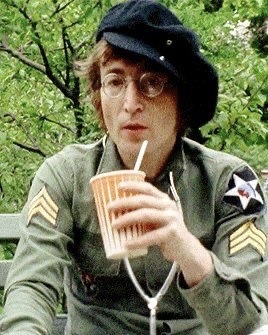



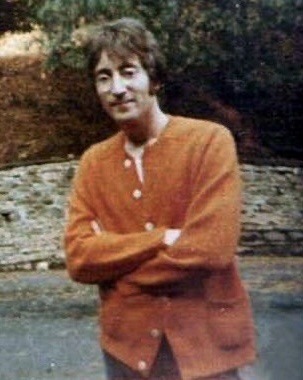

She’s hated! (But never by me ❤️)
225 notes
·
View notes
Text



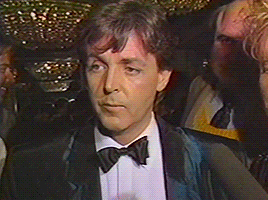
1984🍷
779 notes
·
View notes
Text
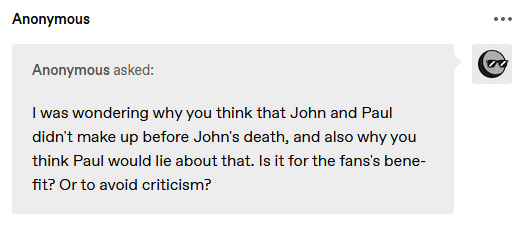
I have a few reasons for thinking this: 1. Paul's increasing positivity about it the further out he gets from actually having to deal with alive!John ("frightening phone calls, glad those aren't in my life anymore"). 2. Decades of confusion and anguish that John never liked him at all. 3. There's this recurring theme that crops up in his music after John dies... (not that these lyrics are literally about John, but in the sense that this is a general sentiment added to his emotional vocabulary after John died)(I do think a few of these are about John tho').


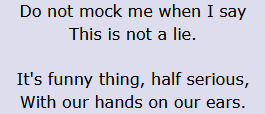


4. The fact that 'Here Today' is defensive in a similar genre ("well, you didn't give me a single inch on this front, but I'm gonna view our history positively anyway!!!!!")

5. Defensiveness in general and still fighting perceived rivalries with John years after his death (commissioned in the 90's not just a biography, but a biog aimed to set the record straight on who brought avant garde to the band). 6. On the day of, Paul said "remind me never to fall out with anyone again". Within ten years this changed to "it's so sad George never made up from falling out with John before he died like I did." 7. That George had to tell Paul to stop fighting Yoko basically on his deathbed, and that Paul's entire perception of his and John's relationship could still be warped, controlled and filtered entirely by Yoko despite them having "made up". 8. Vagueness and repetitive paucity re: his and John's cross-ocean post-75 correspondence. Okay yeah, he and John could small talk about their children and baking hobbies without yelling at each other, but did they actually resolve any of the issues that put barriers up between them in the first place, let alone scale the walls erected during their break up? 9. Paul sounds extremely not even a little bit resolved re: his relationship with John in the infamous off the record convo with Hunter Davies. I take his attitude here - when he was in the thick of the emotional storm almost immediately after the event - over things said to the press 10-40 years later.
And I don't think it's lying at all. It's a completely normal function of human psychology to re-frame traumatic or unresolved events more positively or soberly the further you get away from them, otherwise we'd all go completely insane. Paul wasn't really allowed to process his anger at and grief over John without the fantastical abstraction "St John" marketing construct, or having Yoko jump down his throat, so there isn't really any mental recourse left except to tell himself that they were "okay in the end". Also: even if he were fully conscious that they didn't make up and just sort of tells this pat story in interviews to avoid talking about it, that's also not lying??? Refusing to air your dirtiest laundry in public isn't lying, the press and fans aren't entitled to shit. If I were Paul I would say even less than he has (I say, spending all day thinking deeply invasive thoughts about this man's inner psychology; but see, I do it on tumblr under an anon identity lmao). I think his headspace is more likely the former than the latter, but I wouldn't define either of these as lying.
But I also think where you stand on this issue depends on what you mean by "make up". If you mean they were able to be friendly and polite with each other, then yes: they made up. If you mean "did they exhume the skeletons in their closet as to be able to move on a form a new kind of honest, intimate friendship", then I think the answer is definitively no. It's not unusual to have more formalized, shallow relationships with your teen-hood friends as an adult, esp for someone like Paul who has a very traditionally male attitude of saving all his emotional intimacy for The Wife/Girlfriend and one or two close confidantes, but I think it's clear from the way Paul has struggled with parsing and accepting John's death for about forty years indicates that "formal small talk relationship in which the wounds are efficiently ignored or suppressed" is not what he was hoping to have with John going forward.
52 notes
·
View notes
Text
This is @walkuntilthedaylight. Follow me here for more Beatles related hysteria.
0 notes
Text
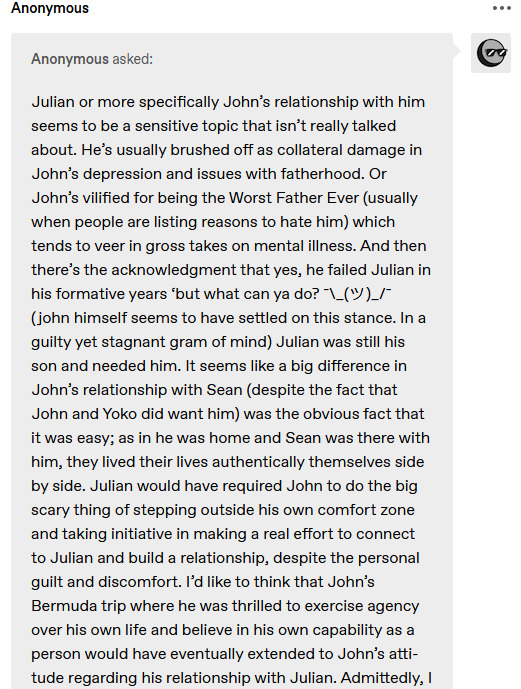
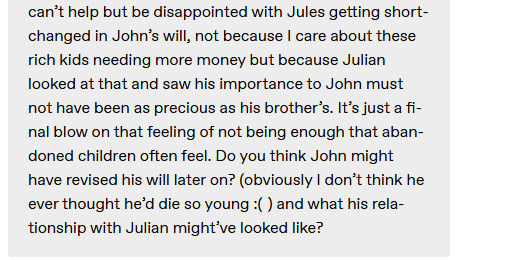
Thanks for this long, thoroughly considered ask. I think you're completely on the money on both points here, that John continued to abandon Julian because it was too uncomfortable to make the effort, and that his Bermuda trip might have been a turning point that made him re-assess his first father-son relationship. I'll explain why I agree tho.
Re: John's comfort zone - I think his "what can ya do?" abandonment of Julian had two factors to it. The first was shame, and his shame-based self hate. John was a classic example of a "thwarted perfectionist" thanks to Mimi's emotionally incestuous and narcissistically stifling upbringing. If you can't do something perfect immediately, there's no point in doing it at all, otherwise you will be subject to ridicule and abuse. Thwarted perfectionists often check out and either don't finish/start projects, or engage in performative self sabotage (John was more of the latter, though he evolved into the former for a while in his 30's). I think his attitude with Julian was "I already fucked this up, I fucked it up right away, there is no fixing it because I was destined to be bad at it, etc". This might not have even been on a fully conscious level, but I can't imagine seeing or thinking about Julian made him feel very good about himself. It was psychologically easier to start with a new kid and do it "right" from the beginning this time instead of fixing what you already broke. In this psychological frame of mind, raising Sean can also simultaneously become redeeming the fuck up with Julian (symbolically; this still left Julian out in the cold). John seemed to view going back to Yoko in 75 in general as an act of maturity based on insight over how he let his first two "marriages" (Cyn, and Lennon-McCartney) fall apart as soon as they got difficult. I would disagree with this personally lol, but if he were talking about anything BUT his codependent relationship with Yoko he'd be totally correct. Like, the sentiment is not wrong, and it says a lot about where his head was.
The other factor is, as you implied, John's belief that he lacked personal agency. This reinforced his thwarted perfectionism, bc the mental hurdle to even imagine himself being able to fix something he broke was too powerful when he was languishing in learned helplessness. It's no accident that the only time he made real overtures to Julian after leaving Cyn was during a period when he was highly productive in a creative sense (and playing a leadership role in many of his creative endeavours to boot) and with a woman who, while she did get sucked into mothering him quite a bit, encouraged him to take risks and uh, like, go outside and shit.
I'm mostly just fleshing out what you've said here with more psychological detail because I think you already hit the key insight: his experience sailing to Bermuda was a huge turning point re: his self perception wrt personal agency. The big elephant in the room, however, is Yoko. It didn't take long for John to start opening himself up a few inches to Cyn and Jules after breaking with Yoko in the mid-70's; it was her who had the zero sum game attitude wrt his first family (which he, don't get me wrong, absolutely went along with at the time, he was so determined and desperate to "break" with his old life; Yoko's "cut everyone out" rhetoric was a useful mental tool and excuse for him). I think the fact that 'Double Fantasy' was originally supposed to be a John-only project that Yoko shouldered her way into indicates that he hadn't actually reclaimed or fully integrated this newfound sense of agency at the time of his death, but the attitude he fostered there hadn't gone away.
So yeah: if John had been able to nurture that positive feeling, if he and Yoko went their separate ways, if he had been able to go back to England and reconnect with his old circle of family and friends, I think it's probably true that he would at least tried to make things right by with Jules (and maybe even Cynthia, but lets not get too crazy here).
As for what it might have looked like, it's difficult to know tbh. I do think that John was one of those people who just had a hard time relating to small children because they couldn't discourse on an adult level (tho notably he was better with young girls than boys). Re-connecting with Julian as a teen/adult who was capable of interacting more as a peer than a dependent probably would do a lot to radically reframe their relationship and give John points of reference and enthusiasm to engage with him. Likely this would have primarily happened through music. However based on observation of similar situations irl, I think there probably would have always been a wedge of distrust present as often happens with adult children of highly irresponsible parents. What I'm saying is that I believe they could have or would have become friends, maybe even close friends, but I don't believe they ever would have become "father and son".
44 notes
·
View notes

